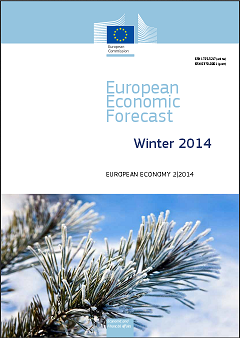De Wilde, P. (2014) “Online discussions show the depth of Eurosceptic feeling across Europe, but they tell us very little about the kind of EU that citizens would like to see“, LSE EUROPP, 25 Φεβρουαρίου. Can online discussions, such as comment sections in articles and blog posts, give a clear insight into citizens’ views on the EU? Pieter de Wilde outlines results of a study on the nature of …Read More
Cross-country Insurance Mechanisms in Currency Unions
Van Beers, N., Bijlsma, M. & Zwart T. J., G. (2014) “Cross-country Insurance Mechanisms in Currency Unions”, Bruegel Institute, 27 Mαρτίου. Countries in a monetary union can adjust to shocks either through internal or external mechanisms. We quantitatively assess for the European Union a number of relevant mechanisms suggested by Mundell’s optimal currency area theory, and compare them to the United States. For this purpose, we update a number …Read More
The Eiffel Group: A political community to rebuild the architecture of the euro
Benassy-Quéré, A. & Vallee, S. (2014) “The Eiffel Group: A Political Community to Rebuild the Architecture of the Euro“, VoxEU Organisation, 27 Μαρτίου. The recent crisis has highlighted some problems in the current structure of the Eurozone, such as the lack of political integration. This column introduces the Eiffel group – a group of French experts – and its call for a ‘political community of the euro’. The economic …Read More
TARGET Balances, Bretton Woods, and the Great Depression
Bordo, M. (2014) “TARGET Balances, Bretton Woods, and the Great Depression“, VoxEU Organisation, 21 Mαρτίου. Since 2007, there has been a buildup of TARGET imbalances within the Eurosystem – growing liabilities of national central banks in the periphery matched by growing claims of central banks in the core. This column argues that, rather than signalling the collapse of the monetary system – as was the case for Bretton Woods …Read More
The Chartbook of Economic Inequality
Atkinson, T. & Morelli, S. (2014) “The Chartbook of Economic Inequality“, VoxEU Organisation, 26 Μαρτίου. Inequality – long ignored – is now centre stage in debate about economic policy around the globe. This column introduces the Chartbook of Economic Inequality, a summary of long-run changes in economic inequality for 25 countries over more than 100 years. Inequality – long ignored – is now centre stage in debate about economic …Read More
The ECB Should Do QE, Mario? Buy US Bonds, Not Eurobonds
Frankel, J. (2014) “The ECB Should Do QE, Mario? Buy US Bonds, Not Eurobonds“, Άρθρο Γνώμης, VoxEU Organisation, 24 Μαρτίου. The Eurozone needs to further ease monetary policy because under the current low inflation and high unemployment periphery countries need to suffer painful deflation. However, the ECB faces challenges other central banks do not face. This column proposes a way to overcome some of these hurdles. It argues that the …Read More
European Economic Forecast, Winter 2014
European Commission (2014) “European Economic Forecast, Winter 2014“, Directorate-General for Economic and Financial Affairs, Φεβρουάριος, Βρυξέλλες. Europe’s economic recovery, which began in the second quarter of 2013, is expected to continue spreading across countries and gaining strength while at the same time becoming more balanced across growth drivers. As it is typical following deep financial crises, however, the recovery remains fragile. Nevertheless, recent positive economic news means that the …Read More
Fairly Sharing the Social Impact of the Crisis in Greece
Koutsogeorgopoulou, V., Matsaganis, M., Leventi, Schneider, J. D., (2013), “Fairly Sharing the Social Impact of the Crisis in Greece” , OECD, Paris. Poverty and income inequality have worsened since the onset of the crisis. While the design of fiscal measures has mitigated the burden sharing of fiscal adjustment, as the recession has deepened unemployment has risen, earnings have declined and social tensions have increased. Getting people back to work …Read More
Fiscal Policy and Income Inequality
International Monetary Fund (2014) “Fiscal Policy and Income Inequality“, IMF Policy Paper, 23 Ιανουαρίου. EXECUTIVE SUMMARY: Fiscal policy is the primary tool for governments to affect income distribution. Rising income inequality in advanced and developing economies has coincided with growing public support for income redistribution. This comes at a time when fiscal restraint is an important priority in many advanced and developing economies. In the context of the Fund’s …Read More
Society at a Glance
OECD (2014) “Society at a Glance: the Crisis and its Aftermath“, OECD Social Indicators, OECD Publishing. The year 2014 is starting, with the perspective of a more widespread and sustainable recovery from the Great Recession. True, risks remain, and the pace of progress still varies widely: in the Eurozone, for instance, a number of economies remain in a fragile state. Nevertheless, the prospects for both the world economy and …Read More





